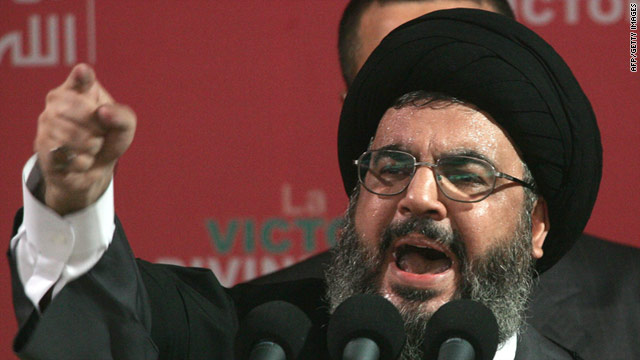Israel announced on Saturday that it had killed Hezbollah leader Sayyed Hassan Nasrallah in a targeted airstrike on the group’s underground headquarters in Beirut’s southern suburbs. If confirmed, Nasrallah’s death would mark a significant blow to Hezbollah and its Iranian allies, as the group reels from Israel’s escalating campaign of attacks. Nasrallah has been the leader of Hezbollah for 32 years and has long been a key figure in Iran’s “Axis of Resistance,” projecting influence across the Middle East.
The Israeli military said the airstrike, which also killed senior Hezbollah leader Ali Karaki and other commanders, was part of a broader effort to disrupt Hezbollah’s military operations. The attack took place on Friday in Dahiyeh, a Hezbollah-controlled suburb of Beirut. The area was hit by a succession of powerful blasts, leaving a crater at least 20 meters deep, according to a Lebanese security source.
The airstrikes continued into Saturday, shaking Beirut as explosions lit up the night sky and smoke billowed over the city. Residents of Dahiyeh, fearing further attacks, fled their homes, seeking refuge in other parts of Beirut. “Yesterday’s strikes were unbelievable,” said Dalal Daher, who fled to Martyrs Square in downtown Beirut. “We thought it would stop, but the bombing just got more intense.”
Hezbollah has yet to confirm Nasrallah’s death, and there has been no official statement from the group. Early reports from Hezbollah sources and Iranian media suggested Nasrallah was alive, but his current status remains unverified. The situation has intensified fears that the conflict could spiral into a wider regional war, drawing in Iran and potentially the United States.
Meanwhile, Hezbollah has continued its cross-border rocket fire into Israel, targeting cities such as Tel Aviv. Although Israeli missile defense systems have intercepted many of the rockets, the attacks have displaced tens of thousands of Israelis and forced many northern communities into lockdown. Israeli military officials said they hoped Nasrallah’s death would change Hezbollah’s strategy but warned that the group’s capabilities would take time to degrade fully.
In addition to the attacks on Hezbollah’s strongholds, the Israeli military is also targeting suspected arms transfers from Iran to Lebanon. Late on Friday, Israeli air force planes patrolled Beirut’s airspace, preventing an Iranian plane from landing in Lebanon. Israeli officials claimed the plane was carrying weapons intended for Hezbollah, though Lebanese authorities did not confirm this.
The conflict, now in its most intense phase since the 2006 Israel-Hezbollah war, has resulted in widespread destruction in Lebanon. Israeli airstrikes have killed more than 700 people in Lebanon this past week alone, with six dead and 91 wounded in Friday’s initial strike. Lebanese health authorities expect the death toll to rise as airstrikes continue. More than 200,000 people have been displaced from Lebanon due to the conflict, with many fleeing to the mountains or neighboring Syria.
Israeli Prime Minister Benjamin Netanyahu, who cut short his trip to New York to return to Israel, defended his country’s military actions during a speech to the United Nations on Friday. “As long as Hezbollah chooses the path of war, Israel has no choice but to remove this threat and ensure the safety of our citizens,” he said. Netanyahu also warned that Israeli forces would continue targeting Hezbollah’s infrastructure in Lebanon, urging civilians to evacuate high-risk areas.
Despite international calls for restraint, the violence shows no signs of abating. The Israeli military has warned residents of Dahiyeh to evacuate, as it plans to target missile launchers and weapons storage facilities hidden under civilian housing. Hezbollah has denied the presence of weapons in these buildings, but Israeli officials maintain that the group has embedded its military operations in civilian areas.
With fears of further escalation growing, the international community remains on high alert. The conflict has already drawn in regional powers, and further Israeli airstrikes on Hezbollah positions could trigger a broader war involving Iran and its allies.



